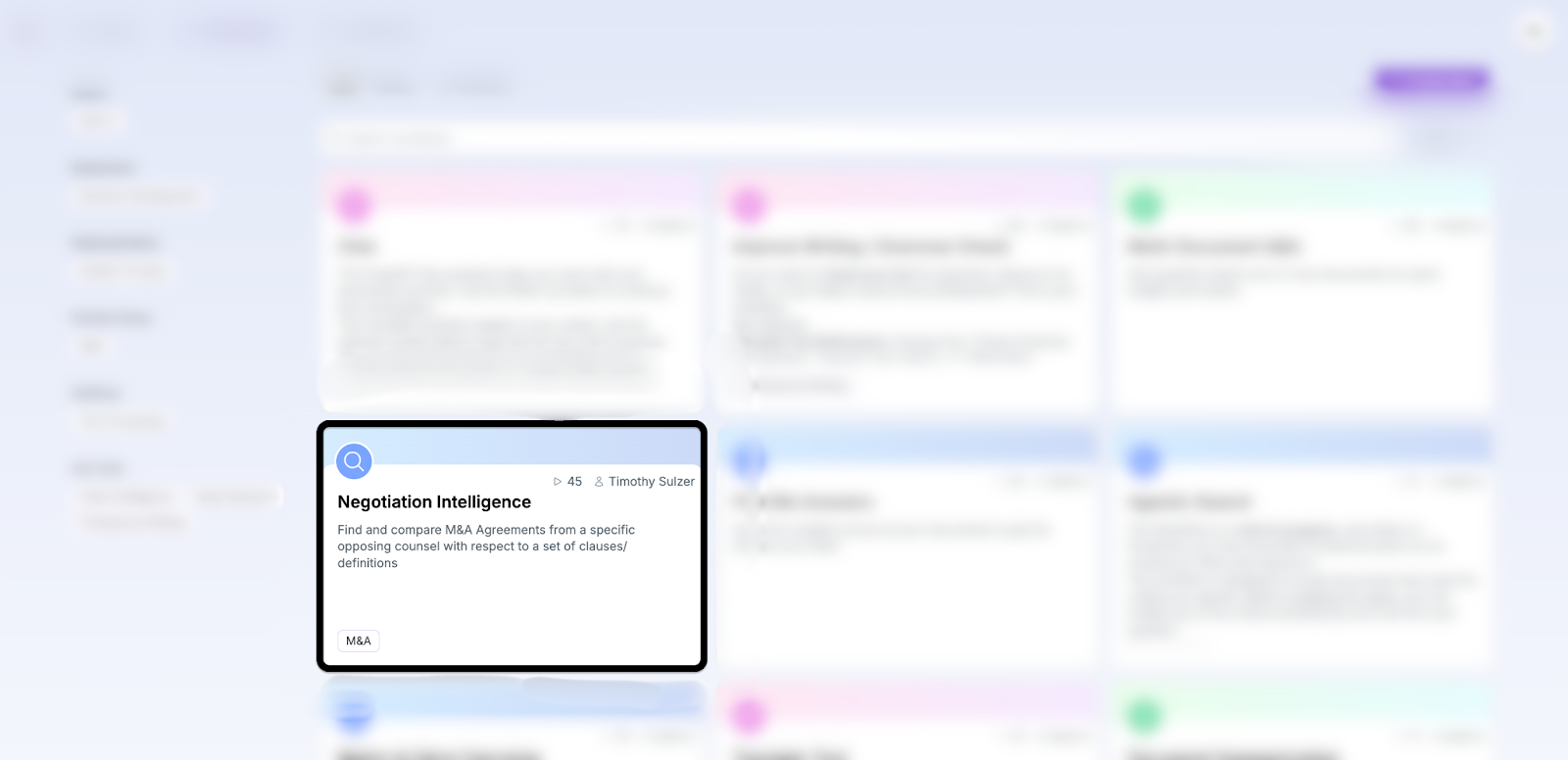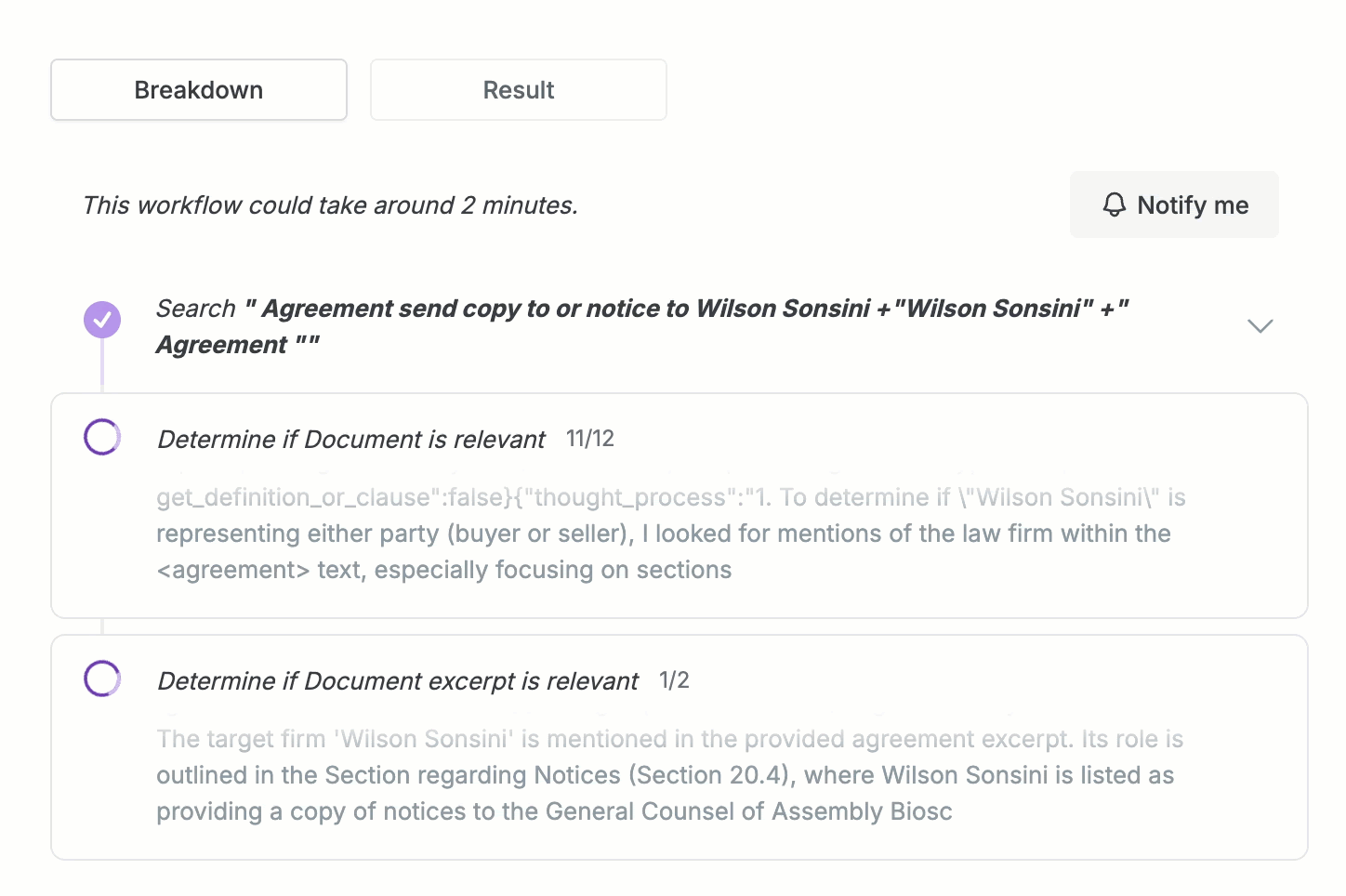Windsurf recently endured a series of eventually-fortunate events: 3 major deal discussions involving 2 separate tech giants, all within 1 week.
It started in April, when OpenAI entered formal talks to acquire Windsurf for $3 billion.1 In May, OpenAI extended an offer,2 but Microsoft’s access to all OpenAI IP made acquiring a competitor to Microsoft-owned Github tricky.3 As a result:
- On July 11, OpenAI’s offer expired4
- Also on July 11, Google immediately closed a “reverse-acquihire” with Windsurf–hiring key select employees and licensing its tech–for $2.4 billion5
- Then on July 14, Cognition AI signed a definitive agreement to purchase the rest of Windsurf’s “IP, product, trademark and brand, and strong business”–including 100% of the remaining talent6
This is a perfect example of deal pace. Deals move quickly–an opportunity today wasn’t around yesterday and will be gone tomorrow.
But effective negotiation doesn’t just move fast; it will anticipate the other side’s moves.
How will they react to my position on a certain point? Last time we went up against them, what term did they use?
Traditional search is impractical
Capturing how opposing counsel handled a certain term or clause means manually reviewing each individual location where the information could reside.
You search Outlook for emails and attachments, but redlined, duplicate, and subsequent versions of those attachments may have also been saved to SharePoint or iManage, and added to matter and client records.
Deal teams need this fast understanding about the posture, sensitivities, and transactional strategies embedded in contracts from prior deals without upending their entire way of working.
Unfortunately, the solution proposed by technology providers does offer that: “First move your stuff to our app, then we can be your one-stop shop where our features alone will solve your problems.”
DeepJudge avoids this whole mess. Simply log in and find what you need wherever you put it.
Find your work and use today’s AI tools
DeepJudge operates on a simple premise: You shouldn’t need to change your entire way of working just to find your work and use today’s AI tools.
We built a search engine that indexes all your legal content and data no matter where it resides, respecting user permissions within each tool, and honoring all existing security protocols to provide clean, usable results. For example, de-duplication across data locations.
Having a single index and unified enterprise search transcends the varying and limited search parameters and API configurations of each individual tool. Deal teams don’t need to hunt across multiple systems to do their work.
The effect? Legal professionals search a complete, current index and get meaningful results in a fraction of a second. Then they work with the relevant identified information and documents in completely transparent, fully customizable AI Workflows.
Dealing with Windsurf with DeepJudge
Let’s say legal counsel for OpenAI, Google, and Cognition AI used DeepJudge to deal with Windsurf. We can safely assume a few needs:
- During acquisition talks, OpenAI will have wanted to understand change of control and successor terms in Windsurf’s existing contracts
- During reverse acquire-hire talks, Google will have wanted to be very clear about licensing conditions, and specify how derivative works based on the IP licensed from Windsurf would be handled
- During acquisition talks after all these prior discussions, Cognition AI will have wanted to understand all of the above!
There are many ways to answer these questions, including searching public databases or even the internet. DeepJudge exists to search your unique, proprietary content, and it’s perfect for our situation: we want to know, in our experience, how opposing counsel has typically handled select terms.
To begin, legal counsel would use DeepJudge AI Workflows, a suite of legal-specific applications that incorporate the best of today’s AI.
For this specific situation, the Negotiation Intelligence workflow will help because it finds and compares specific M&A agreements from a particular opposing counsel with respect to a set of clauses or definitions.

Each workflow requires direction and context to begin. For the Negotiation Intelligence workflow, I will:
- identify the relevant index
- indicate the opposing firm I’m negotiating with
- select the agreement being negotiated or with terms of interest
- provide the relevant clause
- clarify any points of comparison or focus
If I represent Cognition AI, then my inputs might look something like this:
- The index is all of the internal data at our law firm (a fake law firm index we call “Demo”)
- Wilson Sonsini advised Windsurf in the acquisition,7 so they are opposing counsel in this example
- I want to consider terms in various intellectual property agreements
- We are interested in clauses having to do with assignment
- And because of the recent deal with Google only days before, when it comes to licensing agreement change of control provisions, we’re specifically interested in effects on successor power over existing licenses

Breakdown of work
When DeepJudge begins, I receive a transparent, step-by-step “Breakdown” of everything the workflow is doing. I can watch the progress as DeepJudge works…

…but I can also return to the completed Breakdown whenever I want to expand each step and oversee every action taken by the incorporated AI components, including everything from the initial search and document relevancy determinations (1) to analyzing provisions and highlighting substantive differences (2).

In this way, DeepJudge offers full, 100% transparency into how its AI-powered capabilities are working. DeepJudge’s workflow builder also accommodates complete customization, whether users want to tweak an existing workflow or build one from scratch with dozens of no-code components.
Reviewing and using Results
The Negotiation Intelligence workflow “Results” include document metadata, like firm name and attorney name, and analysis about the desired clause.
What we wanted to know
In our case, we wanted to understand how opposing counsel’s “assignment” clauses may negatively affect successor power over existing licenses. In other words, whether any of Wilson Sonsini’s drafting practices or fallback provisions raise alarms in this real-time, developing situation.
What DeepJudge found
In this situation, the Negotiation Intelligence workflow identified clause “7.4 Successor and Assigns” which indicates “The Agreement shall be binding upon” the original parties and “their respective permitted successors and assigns” (emphasis added). This is a good catch, because now I’m wondering: How do they define “permitted successor or assigns”? Will my client enjoy privileges and protections as a “permitted successor”?
I continue using AI Workflows to answer these questions.
Because DeepJudge is designed to show its work, I can access identified documents directly from the workflow’s results: one click opens the Agreement to Section 7.4. From here, I can glimpse adjacent sections for answers. In this case, I see that the next part of the Agreement, Section 7.5, answers my questions.
But I can also use the Agreement to start an additional DeepJudge workflow. For example, I select “▷” to open a menu of available workflows, and then select Chat to access a traditional AI assistant experience in order to answer questions about my document.

I use a simple prompt (“I would like to understand how this document defines ‘permitted successors and assigns.’”), and the Chat workflow also identifies the answer in Section 7.5.

The insights we have at this stage can help in different ways:
- They may help advance preliminary talks with our target, Windsurf (e.g., “Please revise this condition in your existing agreement with Google so we can proceed”)
- They may also help us focus our review of additional agreements during accelerated due diligence (e.g., other than the agreements with Google, did any other Windsurf contracts have similar terms?). And I can use DeepJudge to begin and complete this due diligence work, too, without any additional uploads, because the DeepJudge index we used to identify relevant documents is updated 24/7 to within 2-3 minutes with information from every existing technology tool and system across the firm.
This kind of live intelligence is typically impossible because internal information is in too many places to review quickly and accurately. With DeepJudge, you not only find what you need when you need it, but you can also immediately use custom, transparent AI workflows to finish working with the information you found, no matter how many steps it requires.
About DeepJudge
DeepJudge founders are ex-Google researchers with PhDs in AI from ETH Zurich and our leadership team has held senior roles at Thomson Reuters, Casetext, Kira and more. Our mission is to empower teams of lawyers to better harness their collective knowledge, enabling them to focus on the strategic aspects of their work.
Learn more about DeepJudge here.
---
- https://techcrunch.com/2025/04/16/openai-is-reportedly-in-talks-to-buy-windsurf-for-3b-with-news-expected-later-this-week/
- https://www.reuters.com/business/openai-agrees-buy-windsurf-about-3-billion-bloomberg-news-reports-2025-05-06/
- https://www.axios.com/2025/06/17/microsoft-openai-partners-competitors; and https://blogs.microsoft.com/blog/2023/01/23/microsoftandopenaiextendpartnership/
- https://fortune.com/2025/07/11/the-exclusivity-on-openais-3-billion-acquisition-for-coding-startup-windsfurf-has-expired/
- https://windsurf.com/blog/windsurfs-next-stage; and https://www.bloomberg.com/news/articles/2025-07-11/openai-s-3-billion-deal-to-buy-ai-startup-windsurf-falls-apart
- https://windsurf.com/blog/windsurfs-next-chapter; and https://cognition.ai/blog/windsurf
- https://www.wsgr.com/en/insights/wilson-sonsini-advises-windsurf-on-acquisition-by-cognition-ai.html
